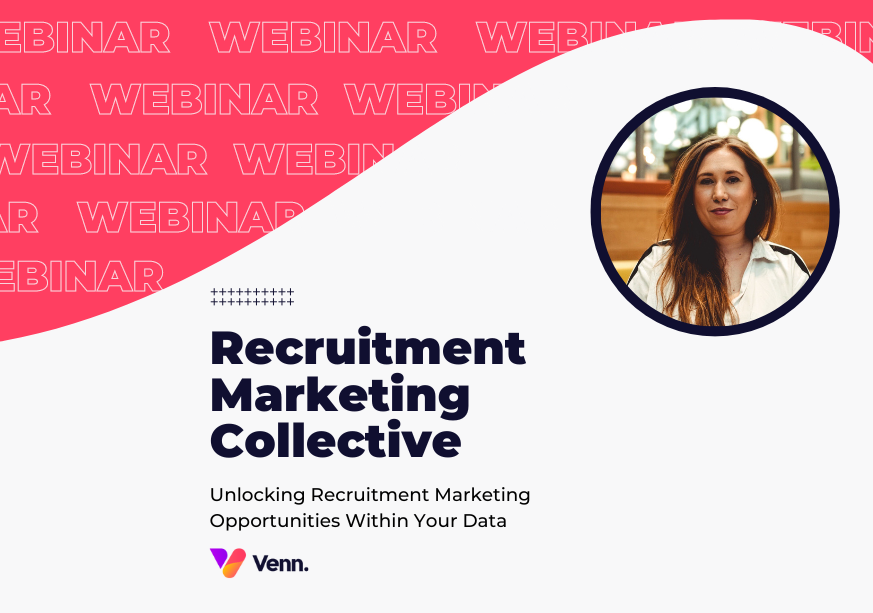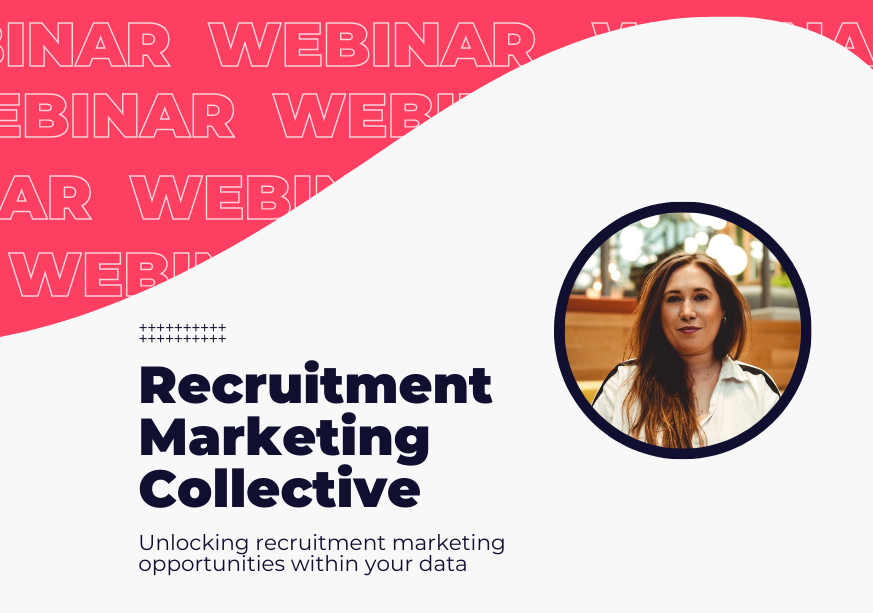Landing pages are a core element of most recruitment marketing strategies, supporting lead generation, candidate attraction and data capture.
Whilst there's no one size fits all when it comes to optimising your landing page, there are core elements and design features that can deliver better results and user experience.
What is a landing page?
A landing page refers to any entry point to a site that is not the homepage. A landing page may be entered through any channel, including an organic search, social media, PPC and email.
The core purpose of a landing page is to convince a user they are in the right place. The best recruitment landing pages should provide clear and targeted messaging, with an obvious call to action button.
Landing pages offer a more strategic approach to website content. Building out landing pages gives you the space to consider unique personas and potential customers visiting your site. For example, you could be looking specifically for graduates, client partners or job seekers searching for a specific role.
What is landing page optimisation?
Landing page optimisation makes up an essential element of your online marketing strategy. You may have a rich catalogue of pages on your site, but are they all set up for your unique objectives?
For example, you may be looking to attract graduates on their job search journey. To do this, you may need targeted PPC campaigns or optimised SEO pages to drive that traffic.
Before optimising your landing pages, it's essential to understand your objective, what pages are working and where the current problem areas are on your site. Tools are available, like Hotjar, to help you track and monitor page performance, giving you an action plan for optimisation.
SEO vs PPC Landing pages.
The main differentiator between a PPC and an SEO landing page is the objective. For PPC, the purpose is to convert leads. With an SEO landing page, we would usually focus on search intent and keywords to rank higher for their specific audience.
Typically there are traditional, optimised page layouts for each objective. For example, say you're creating a PPC landing page on a recruitment website. Best practice would feature a form at the top of the page with a clear message that drives people towards conversion.
Having everything the user needs to know above the fold is the best practice for PPC landing pages. We typically use this layout for gated content and download pieces for lead generation and data capture.
The purpose of an SEO landing page is to capture people actively searching online. This could be for a product or service, a job role or a solution. By understanding the user's search intent, landing pages can be tailored to reach people on their journey.
Working with MRL, we built out SEO landing pages to bring search value to the semiconductor offering on their website. Through competitor research, job board research, and more, we quickly identified the opportunity and built more 'depth' to their recruitment website, resulting in first page Google ranking for sector-specific jobs.
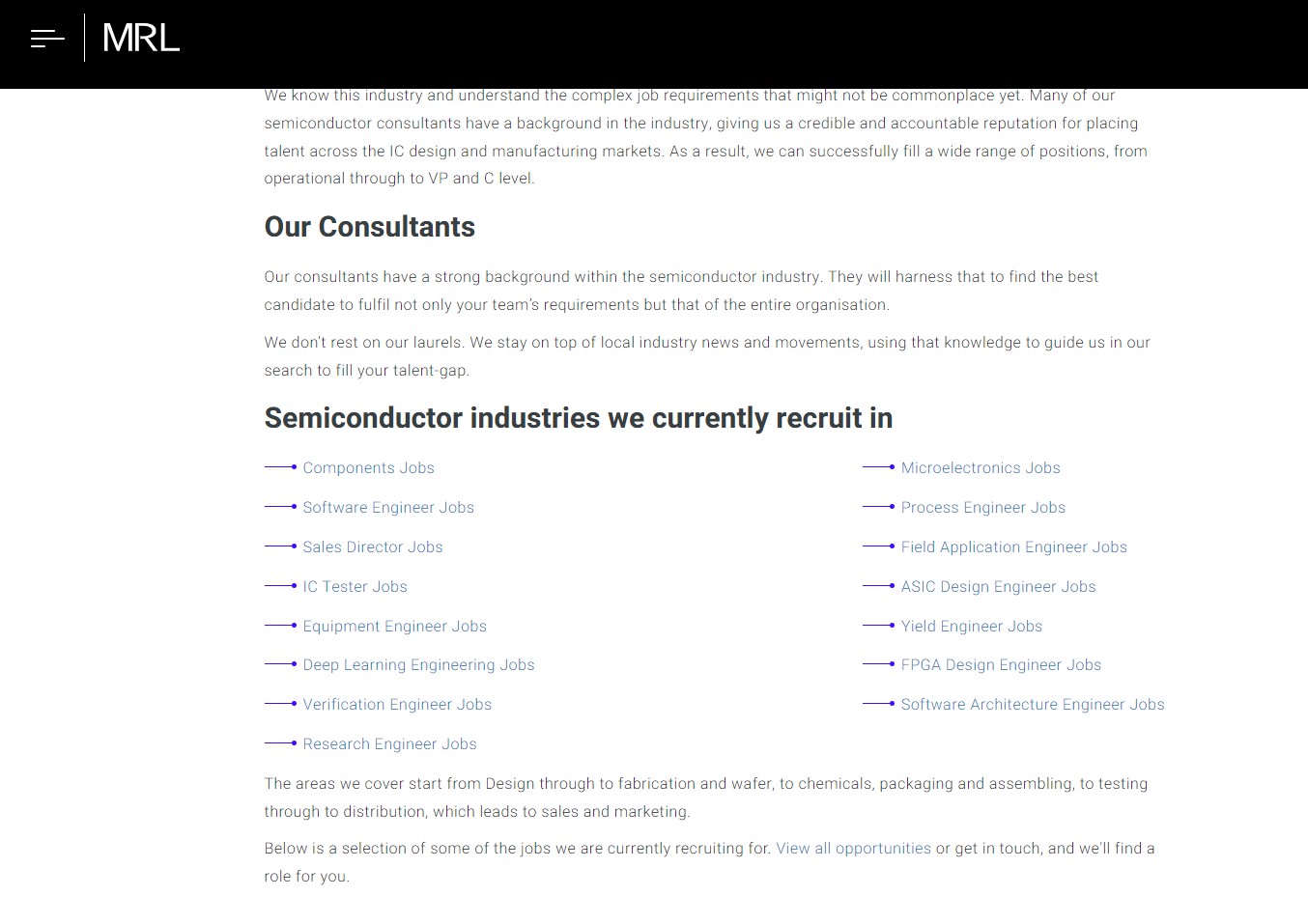
Read the full case study to learn more about our work with MRL.
What does a good landing page look like?
There's no one size fits all for best practice landing pages. It all depends on the purpose and your objective. However, we use some core features and design elements to ensure the best possible results. The best recruitment landing pages and those that will see great results will follow the core guidelines below.
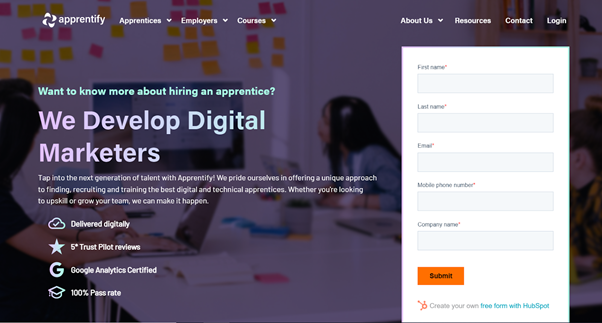
Core elements of an optimised landing page:
Set a clear objective.
Like any marketing activity, objectives are everything. Without understanding what you're trying to achieve, it's hard to implement the correct marketing campaign. Set goals, targets and tracking metrics to see how your page performs and areas for improvement along the way.
Reduce the number of barriers for a user.
Signing up to a form is often why users may abandon their journey. Keep the contact information you ask for to a minimum; only include the fields you need. Keeping a form simple with an email address, name, and phone number will help you see higher conversion rates.
Beyond the form, think about how you can overcome user barriers. For example, say a candidate is not ready to apply for a job. Can they sign up for job alerts, engage with content or visit another page?
Focus on keywords for SEO landing pages.
If ranking and search engine optimisation is your goal, then keywords and copy should be your primary focus on the page. Consider how many keywords you should be using, do your research and test different forms. Bullet points, for example, may offer more concise content and better page performance.

Keep it short and sweet.
Too much copy and the user may bounce and miss the point; too little copy and your audience may not be convinced. Core design principles include having a CTA above the fold so that as soon as you land on the page, it's easy to see what you're supposed to do. The Teamwork example below takes this a step further by removing the navigation options, keeping the user focused on that page alone and removing the exit points.
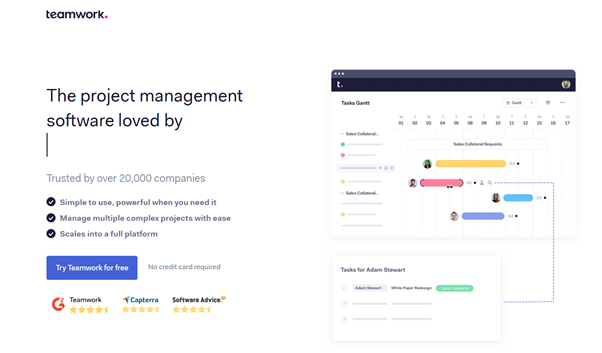
Have a clear Call to Action
CTAs are the most crucial element of your landing page. Above the fold, make sure the action you want your user to take is obvious. If people still aren't convinced, provide other journey or conversion options to avoid a high bounce rate.
Showcase your proof.
Social proof is critical for conversion. Logos, testimonials and case studies give people confidence in your brand and product. Nothing convinces a potential customer more than a glowing review from your client base.
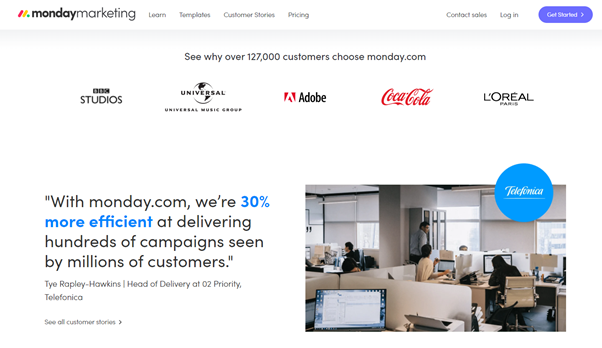
Successful landing pages help bring SEO value to your website, reach your target audience and increase conversions. No matter what your goal, whether you want to attract more leads, improve your search ranking or increase brand awareness, landing pages can help you get there. Learn more about our approach to recruitment marketing strategy or speak to an expert to discover how landing page optimisation could increase your site's performance.





